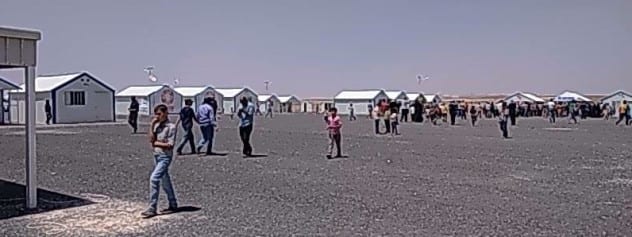Countries in the Middle East have experienced decades of conflict and turmoil, from external issues between neighbors to internal conflict within their respective countries. The conflict in Syria is a result of many years of social exclusion, marginalization, and slow economic growth within the country as well as regional issues in the Middle East. Initially in 2011 citizens began protesting peacefully, but Syrian President Bashar al-Assad began reacting to these protests with violence. This unanticipated reaction from Assad set protesters over the edge, leading to the formation of the Free Syrian Army and numerous militias, both secular and Islamic, scattered throughout Syria in opposition to the Assad regime.1 Since then, Syrians have been fleeing their homes to avoid the violence that has been plaguing their country for the last five years. Of the 4.6 million refugees, nearly 2.3 million are in Turkey, over 1 million in Lebanon, and 600,000 in Jordan.2 Although countries in the Middle East continue to have strained relations, there is an attempt to build temporary housing establishments in response to the Syrian refugee crisis.
We are proud that two of our Arava Institute alumni have taken initiative in applying their passion and skills by working with Syrian refugees. Bara Wahbeh studied at the Arava Institute from 2010 to 2013 and then in December of 2015 co-founded an initiative called ReVI (Refugee Volunteer of Izmir) in Izmir, Turkey. Currently ReVI has over 25 volunteers, working tirelessly in the city of Izmir to support Syrian refugees. Previously Bara worked in collecting information for stories about the refugees and smugglers for news reporters like Ari Shapiro and Deb Amos from NPR. More stories about Bara’s work are soon to come!
Zaid Al Balous attended the Arava Institute in 2013 and has since worked as a Human Resources Associate at the Azraq Refugee Camp in Jordan, one of the largest refugee camps in the country. Working directly with the people in the camp allowed Zaid to “build trustful relationships with the refugees throughout day-to-day interactions and talks.” He connected with people from all over Syria by sharing personal stories and even consoling them through their hardships.
At the Arava Institute we believe that cooperation between people in the region will ultimately lead to a more peaceful and sustainable Middle East, and our alumni have shown that taking the first steps to build trust can go a very long way. Zaid and Bara have made an impact in the lives of Syrian refugees and to this day, Zaid continues to maintain the relationships he built at Azraq. The humanitarian work of our alumni in the region shows that nature, and humanity, knows no borders.
Written by Katya Gonzalez-Willette
Friends of the Arava Institute Communications Fellow
1. AlJudi, Ali. Starr Global Forum at Massachusetts Institute of Technology on October 21, 2015: https://www.youtube.com/watch?v=-eHaINbU4I4&feature=youtu.be
2. Lobatos, Stacey. “The Future of Syria: Refugee Children in Crisis . Geneva: United Nations High Commissioner for Refugees, 2013, Http://unhcr.org/FutureOfSyria/index.html.” Comparative Education Review 59.2 (2015): 381-83. Web.


